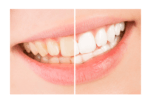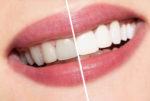Table of Contents

A brighter smile is something that many people desire, and teeth whitening treatments have become increasingly popular to achieve this aesthetic goal. However, it’s important to remember that after a teeth whitening treatment, your teeth may be sensitive and require special care. One of the most important aspects of post-teeth whitening care is what you eat. Certain foods can help promote healing, reduce sensitivity, and enhance the whitening effects. In this article, we’ll share the 10 best foods to eat after teeth whitening, so you can maintain your bright, healthy-looking smile. First on our list of the 10 best foods to eat after teeth whitening are fruits and vegetables. These foods are not only great for your overall health, but they also help promote healing and reduce inflammation in your gums. Some of the best fruits and vegetables to eat include bananas, strawberries, pineapple, and cucumbers. Bananas are rich in potassium, which is essential for strong, healthy teeth, while strawberries contain malic acid, a natural teeth whitener. Pineapple is known for its anti-inflammatory properties, making it an excellent choice for reducing gum sensitivity after teeth whitening. Cucumbers have a high water content, which can help keep your mouth hydrated and reduce dryness.
After a teeth whitening treatment, it is crucial to follow a post-treatment diet to maintain the results and preserve the newly acquired bright smile. The importance of post-teeth whitening diet cannot be overstated as certain foods and drinks can stain or discolor the teeth. Some examples of foods to avoid include coffee, tea, red wine, and acidic fruits. Instead, it is recommended to consume foods with high water content such as celery, cucumber, and apples as they help to remove food particles and bacteria from the teeth. Additionally, foods rich in calcium and phosphorus such as cheese, yogurt, and almonds can help to strengthen the teeth and protect against future discoloration. By following a post-teeth whitening diet, individuals can ensure that their investment in a brighter smile is long-lasting and effective.
The article 10 Best Foods to Eat After Teeth Whitening for a Brighter Smile will guide you through a list of food items that can help you maintain a brighter and healthier smile after teeth whitening. The discussed foods are chosen based on their high nutrient content and low acidity levels, which makes them ideal for consumption post-teeth whitening. The list includes foods such as yogurt, cheese, green vegetables, strawberries, and nuts, all of which are rich in essential vitamins and minerals that promote strong teeth and gums. Additionally, these foods are also beneficial in removing surface stains from teeth and preventing dental erosion, which makes them perfect for maintaining a bright and healthy smile.
Crunchy Fruits and Vegetables
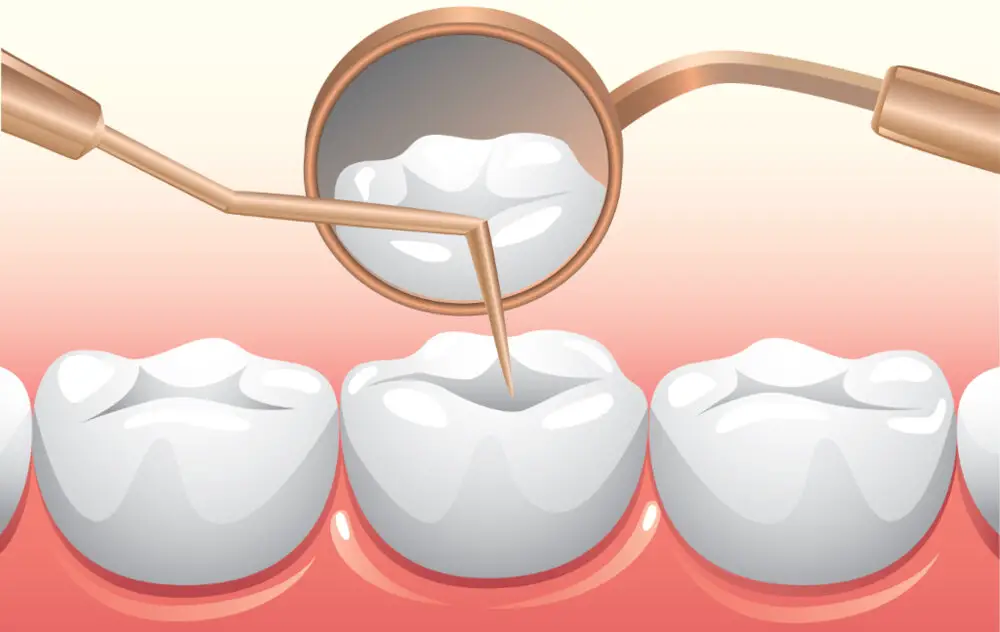
Crunchy fruits and vegetables are a great choice to consume after teeth whitening. These types of foods provide a natural way to clean the teeth and remove any residual stains. Apples, carrots, and celery are excellent options as they require a significant amount of chewing, which produces saliva that helps to neutralize acids and bacteria in the mouth. Additionally, their fibrous texture acts like a natural toothbrush, scrubbing away any debris on the surface of the teeth. Consuming crunchy fruits and vegetables also promotes the production of saliva, which aids in the remineralization of tooth enamel, leaving your teeth looking healthy and vibrant. Incorporating crunchy fruits and vegetables into your diet after teeth whitening not only helps to maintain the brightness of your new smile but also has other health benefits. These foods are rich in vitamins and minerals that are essential to maintaining overall health. For instance, carrots are an excellent source of vitamin A, which is essential for healthy eyesight, while apples contain antioxidants that help to reduce the risk of chronic diseases. Furthermore, consuming these foods promotes good oral health, which is vital for preventing tooth decay and gum disease. Therefore, including crunchy fruits and vegetables in your diet is an excellent way to enhance your smile and overall health.
Crunchy fruits and vegetables are not only delicious, but they are also great for maintaining healthy teeth. The crunchiness of these foods helps to stimulate the production of saliva in the mouth, which aids in the neutralization of harmful acids and bacteria that can cause tooth decay. Additionally, the act of chewing these foods helps to strengthen the jaw muscles and promotes healthy blood flow to the gums. Some of the best crunchy fruits and vegetables to incorporate into your diet include apples, carrots, celery, and cucumbers. Not only will they help keep your teeth healthy, but they’ll also provide a refreshing crunch after your teeth whitening treatment.
After a teeth whitening treatment, it is essential to consume foods that are gentle on your teeth and gums. Crunchy fruits and vegetables are an excellent option as they help to scrub away any residual stains on your teeth’s surface. Some examples of these include carrots, celery, broccoli, apples, and pears. These crunchy snacks are also rich in fiber, which stimulates saliva production, and helps to neutralize harmful bacteria in your mouth. So, not only do these crunchy fruits and vegetables promote a healthier mouth, but they also contribute to a brighter and whiter smile.
Dairy Products

Dairy products are a great choice for those looking to maintain a brighter smile after teeth whitening. Not only are they an excellent source of calcium, which helps strengthen teeth, but they also contain casein, a protein that helps to neutralize acids in the mouth that can lead to tooth decay. Yogurt, in particular, is a great option as it also contains probiotics that can help promote good oral health. In addition to yogurt, other dairy products that can help maintain a bright smile include cheese, milk, and cottage cheese. Cheese, in particular, is beneficial as it contains a high amount of calcium and phosphate, which work together to strengthen tooth enamel and prevent decay. Milk is also a great option as it contains vitamin D, which helps the body absorb calcium, and can help to keep teeth strong and healthy. Overall, incorporating dairy products into your diet is a great way to maintain a bright and healthy smile.
Dairy products such as milk, cheese, and yogurt can be helpful in reducing teeth sensitivity after whitening. This is because these products are rich in calcium and phosphorus, which are essential minerals for healthy teeth. Calcium helps to rebuild and strengthen the enamel of the teeth, while phosphorus helps to remineralize the teeth and protect against decay. Additionally, dairy products contain casein, a protein that helps to coat and protect the teeth from sensitivity. Therefore, incorporating dairy products into your diet after teeth whitening can not only provide relief from sensitivity but also promote overall dental health.
Dairy products are an excellent choice to consume after teeth whitening due to their calcium content, which helps to rebuild tooth enamel. Yogurt, for example, is an excellent source of calcium and probiotics, which can help with digestion and promote a healthy mouth. Cheese, on the other hand, contains casein, which helps to strengthen tooth enamel and prevent cavities. Additionally, milk is a good source of calcium and vitamin D, which are essential for strong bones and teeth. Consuming these dairy products after teeth whitening can not only help to rebuild tooth enamel but also promote oral health and support overall well-being.
Lean Proteins
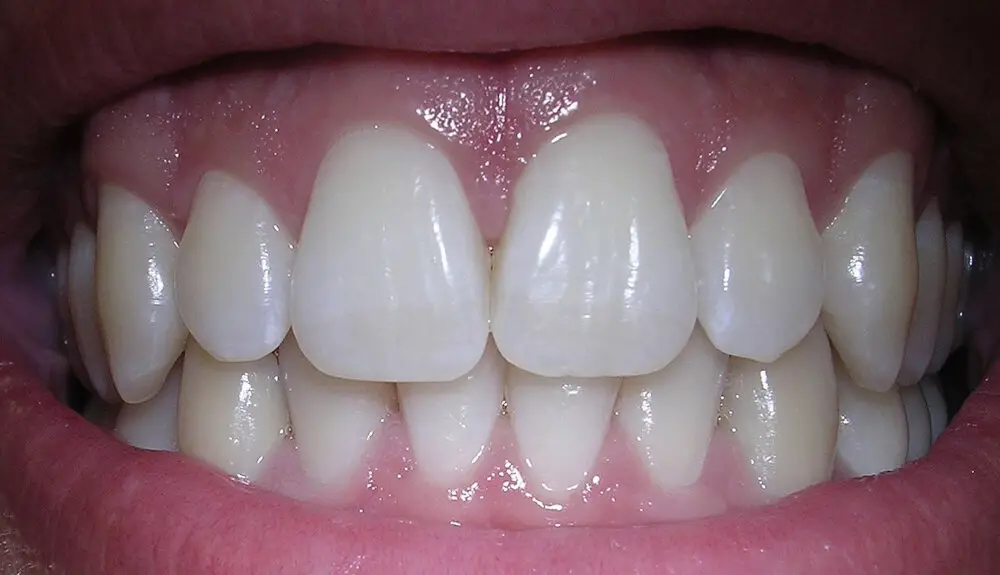
Lean proteins are an excellent food choice after teeth whitening. They are low in sugar and can help to promote healthy oral hygiene. Lean proteins include options such as chicken, fish, and turkey. These foods are low in fat and calories, making them a great addition to any post-whitening meal. In addition to being good for your teeth, lean proteins are also an excellent source of essential nutrients such as protein, iron, and zinc. These nutrients are essential for the growth and repair of tissues, helping to keep your body functioning at its best. Including lean proteins in your diet can also help to promote weight loss and improve heart health. These foods can help to keep you feeling full, reducing the likelihood of overeating or snacking on unhealthy foods. They are also an excellent source of omega-3 fatty acids, which can help to lower cholesterol and reduce the risk of heart disease. Overall, lean proteins are an excellent food choice for anyone looking to improve their oral and overall health.
After undergoing teeth whitening, it is important to consume foods that will help promote muscle recovery. Lean proteins, such as chicken, fish, and tofu, can aid in this process as they are rich in amino acids that are necessary for muscle growth and repair. Additionally, lean proteins can help reduce inflammation and soreness in the mouth, which may occur after teeth whitening. Incorporating these foods into your post-whitening diet can not only aid in muscle recovery but also contribute to overall oral health and a brighter smile.
After teeth whitening, it is essential to consume foods that will not stain your newly whitened teeth. One of the best food groups to consider is lean protein. Lean protein sources include chicken breast, turkey, fish, tofu, and egg whites. These protein sources are not only low in fat but also rich in nutrients such as vitamins and minerals. They are easy to digest, making them ideal for consumption after teeth whitening. Additionally, lean proteins help to repair and maintain the strength of your teeth and gums, which is vital for overall dental health. Enjoying a meal with lean protein after teeth whitening is a great way to maintain your bright smile while ensuring that you get the necessary nutrients for optimal dental health.
Water and Hydration
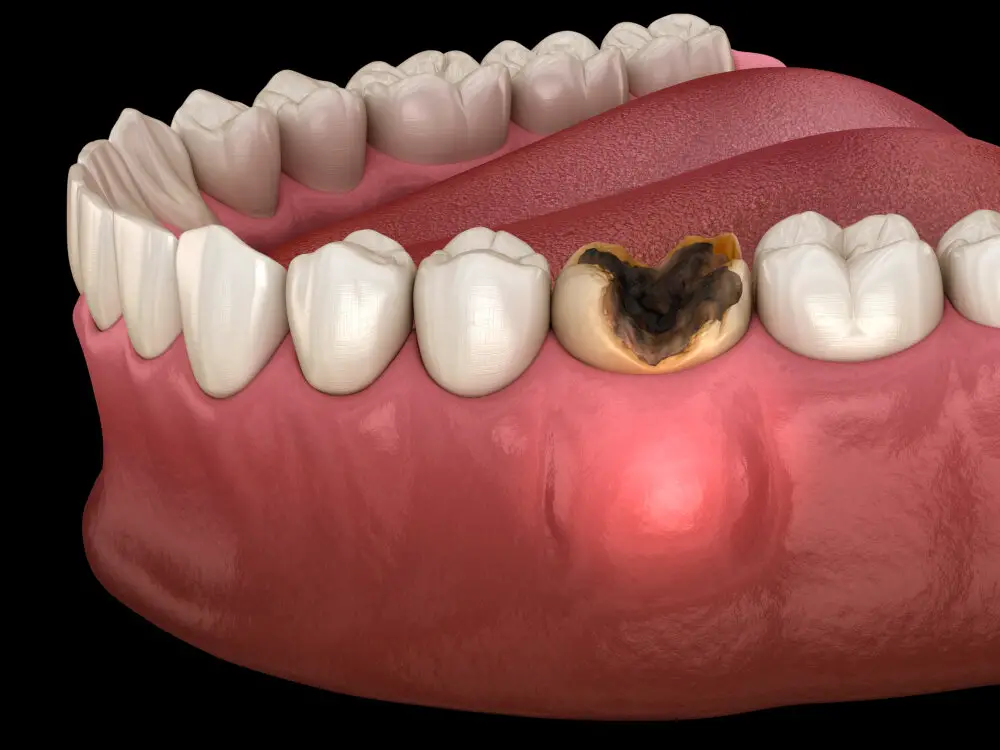
Water is an essential element for our body to function properly. Hydration is essential for maintaining good health, and it also plays a vital role in keeping our teeth healthy and white. Drinking plenty of water can help flush out harmful bacteria and food particles that can cause stains on our teeth. Water also helps to keep the mouth moist, which prevents dry mouth and bad breath. It is recommended to drink at least eight glasses of water per day to maintain optimal hydration. In addition to drinking water, there are other ways to stay hydrated. Eating fruits and vegetables that are high in water content, such as watermelon, cucumber, and celery, can also help to keep the body hydrated. Drinking herbal tea or coconut water can also be a great way to hydrate the body while adding flavor to your water. Overall, staying hydrated is essential for maintaining good health and a bright, white smile.
Hydration is crucial for maintaining good oral health after teeth whitening. When you undergo a teeth whitening treatment, your teeth become more porous, making them vulnerable to staining and sensitivity. Drinking plenty of water helps to flush away any residual bleach, preventing further staining and reducing sensitivity. Additionally, staying hydrated promotes the production of saliva, which is essential for neutralizing acid in the mouth and protecting against tooth decay. So, make sure to drink plenty of water after your teeth whitening treatment to protect your newly brightened smile and maintain optimal oral health.
After teeth whitening, it is essential to stay hydrated to ensure that the whitening process is effective and to prevent any discomfort or sensitivity. Drinking plenty of water is the best way to stay hydrated, and it also helps to wash away any food particles that may stain your teeth. You could also incorporate hydrating foods into your diet, such as watermelon, cucumbers, celery, and strawberries. These foods are high in water content and packed with essential vitamins and minerals. Coconut water is also an excellent option for staying hydrated as it is rich in electrolytes that help to replenish fluids lost during the whitening process. Avoiding sugary and acidic drinks such as soda and fruit juices will also help to protect your newly whitened teeth.
After undergoing teeth whitening procedures, it is essential to maintain the brightness of your smile by eating foods that will not stain or discolor your teeth. The ten best foods to eat after teeth whitening include dairy products such as cheese and yogurt, which are rich in calcium and phosphorus to help strengthen tooth enamel. Crunchy fruits and vegetables like apples and carrots can also help clean teeth and increase saliva production, which can neutralize acids in the mouth. Protein-rich foods like chicken and fish are also recommended, as they contain essential amino acids that help rebuild tooth enamel. Additionally, green leafy vegetables like spinach and kale are excellent sources of vitamins and minerals that can promote healthy teeth and gums. Finally, drinking water is crucial to maintaining oral health, as it helps wash away food particles and neutralize acids that can cause tooth decay.
After undergoing teeth whitening treatment, it is important to maintain a healthy diet that will not only enhance the appearance of your newly brightened teeth but also promote overall oral health. Avoiding food and drinks that are known to stain teeth, such as coffee, tea, red wine, and dark-colored fruits, is essential. Opt for foods that are high in fiber, such as leafy greens and crunchy fruits and vegetables, which help scrub the surface of your teeth and stimulate saliva production. Additionally, drinking plenty of water throughout the day can help rinse away any leftover food particles and prevent staining. Following these tips and maintaining a healthy diet can help ensure that your bright, white smile lasts as long as possible.
Conclusion

In conclusion, maintaining a healthy and bright smile after teeth whitening requires careful consideration of the foods we consume. The 10 best foods recommended for consumption after teeth whitening include foods rich in vitamins and minerals such as calcium, vitamin C, and iron. These foods include cheese, leafy greens, strawberries, and lean meats. It is important to avoid acidic and pigmented foods which can stain the teeth and reverse the effects of teeth whitening. By incorporating these foods into your diet and avoiding harmful foods, you can enjoy a brighter, healthier smile for years to come.

